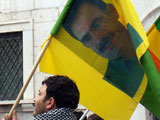PKK: Breaking the Stalemate
By Gareth Jenkins for ISN
On 13 April 2009, the Kurdistan Workers’ Party (PKK) announced a unilateral ceasefire until 1 June 2009, during which time it would suspend all offensive military operations. It described the initiative as an opportunity for the Turkish state to seek a peaceful solution to the 25-year-old insurgency. This, following the strong performance of the Democratic Society Party (DTP), which is generally regarded as being close to the organization, in the predominantly Kurdish southeast of Turkey in the nationwide 29 March local elections.
Since launching its insurgency in 1984, the PKK has frequently announced unilateral ceasefires. Most have been for propaganda purposes and have tended to be timed to ensure minimal impact on the organization’s operational capabilities. The 13 April announcement came at the end of an unusually long winter, when the spring thaw had only just begun to free up the mountain passes on the PKK’s infiltration routes and supply lines between its camps and bases in northern Iraq and the main battleground in southeast Turkey; and thus at a time when the organization was essentially still preparing for the campaigning season.
However, the PKK’s latest ceasefire also coincided with an unprecedented number of rumors about back-channel contacts between the PKK and the Turkish security apparatus – particularly the Turkish National Intelligence Organization (MIT) – in an attempt to reduce the level of violence as the first step toward a peaceful resolution of the conflict.
There is also little doubt that the DPT’s gains in the March elections were seen by many in the security apparatus as a stark reminder that, even if years of often brutal counter-insurgency warfare have degraded the PKK’s military capabilities, they have singularly failed either to eradicate the organization or undermine its grassroots support.
But, regardless of the PKK’s ceasefire announcement and whatever the truth of the rumors of discreet contacts with MIT, in practice nothing seemed to change. On 14 April, multiple police raids across Turkey resulted in the detention of 51 DTP officials on charges of aiding the PKK. Through late April and early May, as the weather began to warm, the number of clashes between PKK units and the Turkish security forces escalated, and there was a commensurate rise in the number of deaths and injuries.
If some of the clashes were the result of the Turkish military attacking the PKK, others - such as a rocket attack on a police station in Hakkari on 14 May - are impossible to reconcile with the organization’s purported commitment to suspending offensive operations.
Several of the preconditions set by the PKK for a permanent end to hostilities - such as recognizing imprisoned PKK leader Abdullah Ocalan as a legitimate political interlocutor - are, and are likely to remain, anathema to the Turkish authorities. But it is also clear that military means alone will not eradicate the PKK.
On 29 April, three people were killed in a series of police raids in Istanbul against a small leftist organization known as Devrimci Karagah (Revolutionary Headquarters or DK). Although it is ostensibly Marxist, sources close to the DK make no secret of the fact that it is armed and trained by the PKK, mostly in northern Iraq. The police raids followed intelligence reports that the DK was preparing a high-profile terrorist attack in Istanbul in June or July, although there was no indication of the precise target.
On 27 July 2008, 17 people were killed and 154 injured in an apparent PKK bombing in the Gungoren neighborhood of Istanbul. Unlike other PKK bombings, the Gungoren attack appeared designed solely to cause as many civilian casualties as possible.
There is now considerable concern in the Turkish security forces that, in an attempt to break the stalemate in its insurgency, the PKK will use small organizations like the DK to carry out mass casualty attacks in western Turkey. This will maximize pressure on the Turkish authorities while limiting the damage to its international image by enabling it to deny direct responsibility for civilian deaths.

